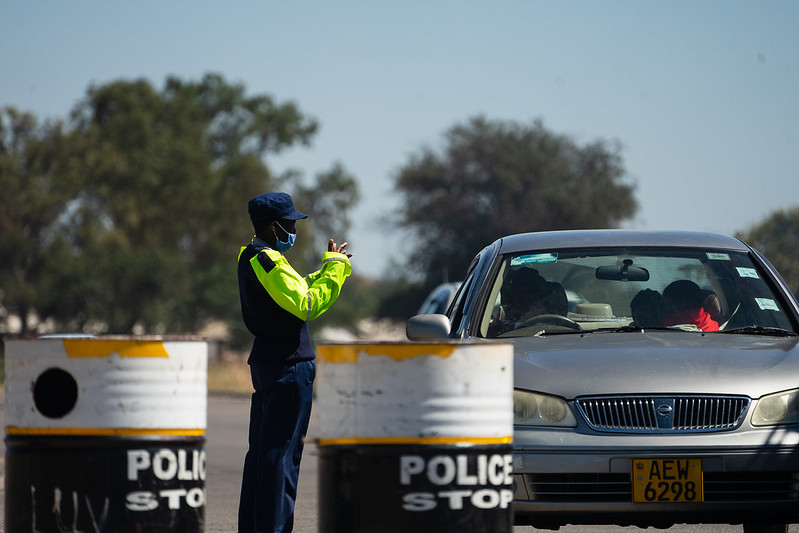The ongoing debate surrounding the impact of Covid-19 on organised crime is incomplete. Whilst discussions have centred on the workings of mafia-type groups and other non-state actors, these are not the only important players in the field of organised crime. In recent decades we have seen many cases of high-ranking politicians and bureaucrats directly participating in organised crime. The phenomenon is global, from Paraguay to Montenegro, Senegal, South Africa, Ukraine, Belarus, Jordan, and Guinea Bissau, to name a few. Research suggests that there is an increasing overlap between state and criminal actors, as well as growing evidence of high-level state complicity in criminal markets.
A recent report from the Global Initiative against Transnational Organised Crime found that state-affiliated actors are the most prominent criminal actors across the African continent. The role of mafias is negligible in comparison. Two organised crime scholars reported in 2019 that one of the most important recent trends in Latin America is the increasing involvement of state agencies and politicians in organised criminal activities.
This has been found to be the case with many different forms of organised crime. Wildlife trafficking researchers have found that complicity of high-level officials and law enforcement structures, beyond just bribery or collusion, is a crucial challenge. Researchers including myself have shown that high-ranking law enforcement officials are key actors in organising drug trafficking in Central Asia. Analysis of Cassava and Timber networks at the Cambodia-Vietnam border demonstrate that border authorities, militaries and customs are playing a central role in the illegal trade. These are just a few examples from vast empirical evidence.
In most of these countries, the military, security services and police are now gaining more power and more coercive capacity as a result of Covid-19 mitigation measures. This is happening in conditions of low public accountability, breeding norms of impunity which allow state-embedded actors to abuse the system for private gain. Conventional constructs of organised crime with an implicit focus on the ‘underworld’ are insufficient. If we are to devise effective anti-organised crime and anti-corruption policies in a post-pandemic era, these approaches must consider the fundamental role of the state.
Covid-19 is reinvigorating the Leviathan with unprecedented and extraordinary force. Governments across the world are adopting emergency measures to manage the crisis, including new powers to police and security agencies for extensive surveillance. These new forms of authority have a lot of ‘sticking power’ – that is to say that governments will be reluctant to relinquish them when the crisis is over. The implications for organised crime are wide-ranging and complex but, in a nutshell, this means more scrutiny on criminal activity in developed nations; as well as novel opportunities for illegal profit related to new demand for scarce goods.
In countries such as Italy or Japan, traditional mafia structures may benefit immensely from post-crisis state subsidising of the economy. In states like Brazil and Mexico, where non-state actors had partially replaced the state in providing governance in certain regions, they will further capitalise on this opportunity to expand their influence. Yet in many other parts of the world, enhanced powers may lead to changes in patterns of dominance over illegal markets, this time in favour of state-affiliated actors.
Contrary to widely held assumptions that corruption should be distinguished from organised crime, the line is blurred in the cases mentioned above. Scholars and experts alike often engage into tautological arguments, explaining corruption by presence of organised crime or vice versa. These perspectives treat the involvement of state-affiliated actors in organised crime as a by-product of corruption in public office; portraying corruption as a strategy used by criminal groups to ‘penetrate’ or influence the state. This often produces an incorrect perception of criminality as a field mainly populated by non-state actors.
There is some evidence of politicians using this discourse to divert attention from their own connection to illegal activities. In fact, most criminal activity in developing countries requires some form of complacency at best on the part of state-affiliated individuals. In these cases, the distinction between corruption and organised crime has only limited, mostly analytical value. In many instances state-affiliated actors are ‘organising’ crimes e.g. politicians owning/controlling the private companies that are directly implicated in smuggling/counterfeiting of illicit cigarettes and/or police officials running/managing a network that moves drugs across the borders. This distinction between organised crime and corruption is further diluted by the nature of political power arrangements, which provide various factions of the political elite with access to illicit markets.
States are wealthier and more powerful than non-state criminal networks, but maintaining peaceful and equitable systems, is often a matter of choosing [not] to enforce the law, rather than a lack of enforcement capacity. Enforcement is often a tradable good which is manipulated by state officials and deployed arbitrarily and selectively. This is often under-appreciated in the context of the Global South, where states are traditionally regarded as ‘weak’ even though they are making significant investments in boosting their coercive capacity in order to control society (or they inherit this capacity from their authoritarian past, for example in post-communist states).
States’ weaknesses and strengths are often multi-layered: law enforcement structures may exhibit weaknesses in territorial reach or may lack clearly defined mandates, but can simultaneously be quite efficient in penetrating society and in detecting and unravelling clandestine networks. This is useful when a state wants to play the role of regulator for an illegal activity, or practice ‘forbearance’ i.e. tolerating illegal activities for their distributional and electoral considerations. There are many underlying motivators of forbearance. It can be driven by a desire to maintain social peace, gather intelligence in exchange for providing protection to smugglers, or to co-opt political factions in governance systems by providing them with a share in illegal markets. Further still, this goes beyond forbearance and providing protection because state-affiliated networks are often keen to use state power to displace ‘underworld’ competitors in illegal markets.
The thesis that organised crime flourishes due to absent, sparse or ‘weak’ state institutions fails to reflect reality in many of the countries discussed above. It should not be assumed that in the counterfactual, stronger state presence would de facto lead to a decrease in organised criminal activity. Where state power is unfiltered, stronger law enforcement mechanisms may allow state-affiliated actors to dominate illegal markets.
Dr Alexander Kupatadze is an Assistant Professor at the School of Politics and Economics, King’s College London. He has more than 17 years of research experience on organised crime and corruption having had his first research post as junior fellow with TraCCC’s (Terrorism, Transnational Crime and Corruption Center) branch in Georgia in 2003-2005. Prior to joining King’s College Dr Kupatadze taught at the School of International Relations, St Andrews University (2014-2016) and held the postdoctoral positions at George Washington University (2010-11), Oxford University (2012-13) and Princeton University (2013-14). Apart from academic research Dr Kupatadze has advised various governments and international organisations on various issues related to transnational crime and corruption. His work has appeared in the British Journal of Political Science, Journal of Democracy, Theoretical Criminology, Nonproliferation Review and other leading journals. His research has been funded by British Academy, British Association for Slavonic and East European Studies (BASEES) and Harry Frank Guggenheim Foundation.
Main image credit: International Labour Organisation, via Flickr.
The views expressed in this article are those of the author(s) and do not necessarily reflect the views of RUSI or any other institution.



